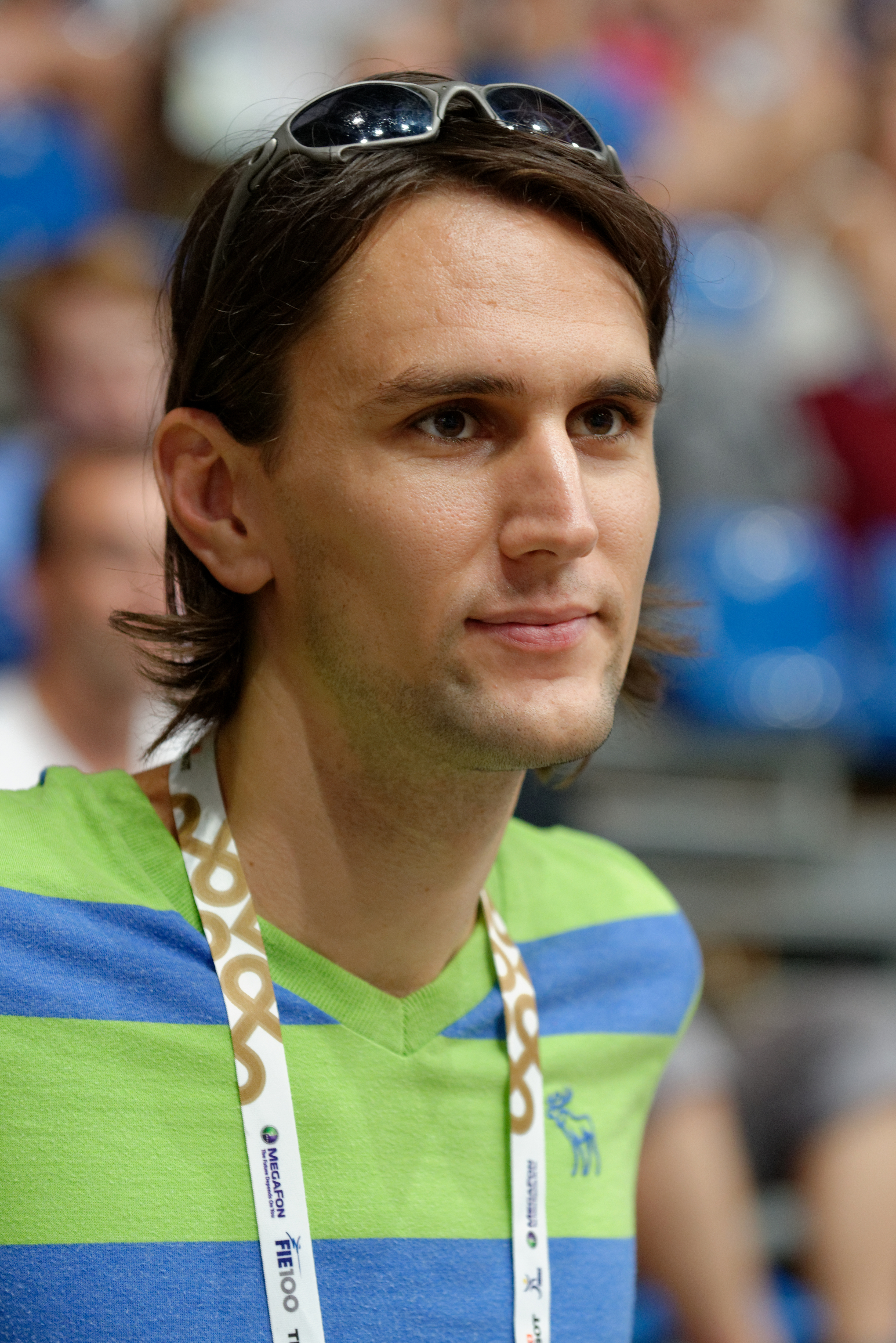1. Overview
András Rédli (Rédli AndrásHungarian) is a prominent Hungarian right-handed épée fencer known for his significant achievements in international competitions. His career highlights include an Olympic bronze medal in the team épée event at the 2016 Rio Olympics, a team gold medal at the 2013 World Championships, and an individual gold medal at the 2014 European Championships. He has also secured numerous other medals at World Championships, European Championships, and various World Cup and Grand Prix events.
2. Personal Background
This section details András Rédli's foundational information, including his birth, early life, and institutional affiliations that shaped his fencing career.
2.1. Birth and Early Life
András Rédli was born on October 21, 1983, in Tapolca, Hungary. He is a Hungarian national and primarily competes with the épée, using his right hand as his dominant hand.
2.2. Education and Affiliation
Rédli received his education at Óbuda University. Throughout his career, he has been affiliated with several fencing clubs. From 1995 to 2016, he was a member of the Balaton Vívóklub. In 2017, he transitioned to Honvéd, where he has continued his training. Beyond his sports clubs, Rédli is also associated with the Hungarian Defence Force.
3. Athletic Career and Major Achievements
András Rédli's athletic career is marked by consistent performance and numerous medal wins across the most prestigious international fencing events.

3.1. Olympic Career
Rédli represented Hungary at the 2016 Summer Olympics held in Rio de Janeiro, Brazil. He was a key member of the Hungarian men's épée team that secured a bronze medal at the games.
| Year | Location | Event | Position |
|---|---|---|---|
| 2016 | Rio de Janeiro, Brazil | Team Men's Épée | Bronze |
3.2. World Championship
András Rédli has achieved considerable success at the World Fencing Championships, earning a total of five medals, including one gold, one silver, and three bronze medals. His gold medal came in the team event on home soil in Budapest, Hungary, in 2013.
3.3. European Championship
Rédli has been a dominant force at the European Fencing Championships, accumulating a total of six medals, comprising three gold, two silver, and one bronze. Notably, he won individual gold in 2014.
3.4. World Cup and Grand Prix
András Rédli has consistently performed well in the Fencing World Cup and Fencing Grand Prix series, securing multiple medals throughout his career.
| Date | Location | Event | Position |
|---|---|---|---|
| Grand Prix | |||
| 2008-01-18 | Doha, Qatar | Individual Men's Épée | Bronze |
| World Cup | |||
| 2007-03-03 | Bern, Switzerland | Individual Men's Épée | Bronze |
| 2009-03-27 | Heidenheim, Germany | Individual Men's Épée | Gold |
| 2009-05-09 | Paris, France | Individual Men's Épée | Bronze |
| 2013-01-25 | Legnano, Italy | Individual Men's Épée | Bronze |
| 2014-02-14 | Heidenheim, Germany | Individual Men's Épée | Silver |
| 2017-11-17 | Legnano, Italy | Individual Men's Épée | Gold |
| 2019-03-22 | Buenos Aires, Argentina | Individual Men's Épée | Bronze |
4. Awards and Honors
András Rédli has received several individual awards and state honors in recognition of his contributions to Hungarian fencing.
4.1. Individual Awards
Rédli was awarded the Junior Príma award in 2009. He was also recognized as a member of the Hungarian fencing team of the Year twice, in 2008 and 2009. In 2014, his individual prowess was acknowledged when he was named the Hungarian Fencer of the Year.
4.2. Honors and Special Commendations
The Hungarian government has bestowed significant honors upon Rédli for his athletic achievements. In 2014, he received the Badge of Honour - Silver Cross, part of the Order of Merit of the Republic of Hungary. Two years later, in 2016, he was further honored with the Cross of Merit of Hungary - Golden Cross.


5. Personal Life
Information regarding András Rédli's personal life, family, and interests outside of his fencing career is not extensively detailed in publicly available sources.
6. Assessment and Impact
András Rédli's career has significantly contributed to Hungarian fencing, particularly in the épée discipline. His consistent performance at the highest levels of international competition, including Olympic, World, and European medals, underscores his status as one of Hungary's notable fencers of his generation. His achievements, especially in team events, highlight his role in the collective success of the Hungarian national fencing squad.